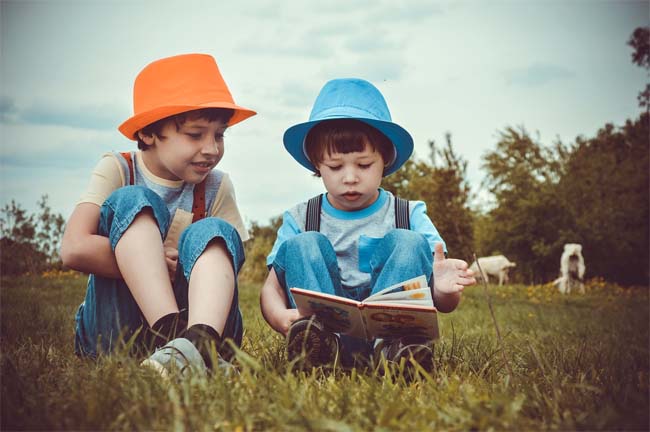CHILDREN and CHORES
WHY IS IT
THE MAJORITY OF OUR CHILDREN BALK AT DOING
CHORES AROUND THE HOME?
Children and Chores…Why do they always appear to be on 2 opposite sides of the pole? Aside from the fact that chores are typically not much fun, why are parents almost always met with tantrums when trying to get their children to do even simple chores? Is there some way to change how children look at chores or should we simply hold our ground and insist they do their chores, no matter what!
Children who willingly do chores may be few and far between. But these are the children who learn that household work must be done and each member of a family has to contribute to getting it done. (And, if we persevere, perhaps the ones with the tantrums will understand as well—(eventually!)
THE RESEARCH
If we look at some of the research that has been done, it appears that children who do chores most often turn out to be more successful adults:
- Julie Lythcott-Haims, former Dean of students at Stanford University and author of ‘How to Raise an Adult,’ has suggested that the earlier children start doing chores, the more prepared they will be for adulthood. Additionally, children doing chores when growing up may make better employees who can collaborate well with coworkers and are able to work independently.
- A University of Minnesota study found the best predictor of success in education, careers, and relationships was whether a child started doing chores as early as age 3 or 4. In fact, the earlier we start having children help out, the greater the benefits. When they are young, children love to help us do things. As they grow older they lose interest. So, perhaps it would be wise to take advantage of this childhood enthusiasm.
DOES SKIPPING CHORES
IN CHILDHOOD LEAD TO
SKIPPING CHORES IN ADULTHOOD?
It is a simple fact that when children become adults and go out into the world, they have to, at some point, learn that even if you have to work late, you still have to clean up the kitchen, shop, and attend to personal affairs. It is entirely possible that skipping chores in childhood may very well lead to skipping chores in adulthood. But by making children do chores in the home such as their own laundry or taking out the garbage or washing the dishes, they are able to take part in the work of the real world. It helps them to take the focus off themselves and what they need at the moment.
DISCOURAGED?
Don’t be discouraged! If you do not insist your child or children participate in doing chores regularly, you are not alone. Most parents don’t require chores. Excuses such as the parents are too busy or the child has too much homework are common.
In one research poll of 1,001 parents, 82 percent said they grew up doing chores themselves, but only 28 percent said they regularly assign chores to their children.
CHILDREN AND CHORES
IN THE COMMUNITY
Children doing chores around the house is important. And helping out in the family’s community can also teach life-changing lessons. Children can learn that no matter how small their individual task is, they are part of a team doing the work. When that happens, everyone does better. Helping out at a food pantry or religious function are good examples of this.
WHEN CHILDREN DO CHORES,
DOES IT REALLY HELP THE PARENT?
When children do chores, what does this mean for the parents? In the beginning, it certainly does not make things easier. Of course, you can do any job much more quickly and better at first. It is a challenge to not jump in and take over. As time goes on, though, your child can actually be a big help, possibly leading to more family time and less stress.
SOME STRATEGIES TO GET CHILDREN TO DO CHORES
Below are a few strategies to try to bring together children and chores:
- Inject fun into the process by playing music and singing,
- Do chores while playing a funny character.
- Make a normal chore more interesting by adding a time challenge or by making it more difficult.
Over time, these children might gravitate towards specific areas like taking care of the dog’s food, water, and bedding because they love animals. This is a great way to let them help while exploring their interests.
AGE-APPROPRIATE CHORES
FOR CHILDREN
Here are some suggested ideas for age-appropriate chores for children (some chores obviously with parental supervision):
AGES 2-3: Put toys in toy box, Stock books on shelf, Place dirty clothes in laundry hamper, Throw trash away, Carry firewood, Fold washcloths, Set the table, Fetch diapers & wipes, Dust baseboards.
AGES 4-5: Feed pets, Wipe up spills, Put away toys, Make the bed, Straighten bedroom, Water houseplants, Sort clean silverware, Prepare simple snacks, Use handheld vacuum, Clear kitchen table, Dry and put away dishes, Disinfect doorknobs.
AGES 6-7: Gather trash, Fold towels, Dust mop floors, Empty dishwasher, Match clean socks, Weed garden, Rake leaves, Peel potatoes or carrots, Make salad, Replace toilet paper roll.
AGES 8-9: Load dishwasher, Change light bulbs, Wash laundry, Hang/fold clean clothes, Dust furniture, Spray off patio, Put groceries away, Scramble eggs, Bake cookies, Walk dogs, Sweep porches, Wipe off table.
AGES 10-11: Clean bathrooms, Vacuum rugs, Clean countertops, Deep clean kitchen, Prepare simple meal, Mow lawn, Bring in mail, Do simple mending (hems, buttons, etc.).
AGES 12 and UP: Mop floors, Change overhead lights, Wash/vacuum car, Trim hedges, Paint walls, Shop for groceries w/list, Cook complete dinner, Bake bread or cake, Wash windows, Iron clothes, Watch younger siblings.
DON'T GIVE UP!
No matter how hard you find the task of getting your child or children to do chores, keep in mind the research stated above. It might even help to let the older ones know about the research that has been done.
It is important to restrain from guilting the child and feeling the child should be doing these chores to help you because you are so busy working to help them. Let them know you are requiring them to do chores to help them become successful adults.
Always keep in mind that taking part in the running of a household is one of the most important tasks a child can participate in while growing up. You are really working toward building an adult who is able to take care of himself or herself, who likes to help others, who can fit well into the workplace, and who takes pride in being a positive part of the real world. Perhaps some of the best lessons are the ones we learn in our childhood.
Children and chores can and should always go together.
"The Cleanest Clean You've Ever Seen."
by
ABC Oriental Rug & Carpet Cleaning Co.
130 Cecil Malone Drive Ithaca, NY 14850
607-272-1566














